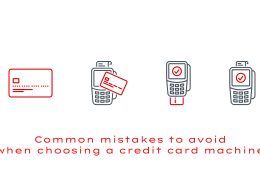New research from digital payments specialist takepayments has uncovered a concerning knowledge gap around business taxes among the UK’s self-employed community. A survey of 400 sole traders and self-employed individuals revealed that:
- 43% are unaware of the tax rate for their income band
- 31% don’t know which tax band they fall under
- 34% are unclear about the deadline for making advance payments toward their tax bill
In light of these findings, takepayments has launched a Business Tax and National Insurance Calculator. The tool is designed to help sole traders estimate their monthly and yearly tax liabilities based on income and expenses, making it easier to stay on top of their financial obligations.
“It’s not surprising that many small business owners are unsure of the legal obligations they have regarding things like tax and VAT,” said Jodie Wilkinson, Head of Strategic Partnerships at takepayments. “The rules can be quite difficult to understand, especially if you just want to focus on growing your business.”
Jodie hopes that the takepayments tax calculator can make life easier for those businesses who are juggling growing their enterprise, whilst trying to understand tax and VAT.
“The calculator should help take some of the guesswork out of paying tax,” says Jodie. “It’s a free tool that anyone can use, whether you’re an established business or a budding entrepreneur yet to register.”
Below Jodie has provided her top tips on how to budget for their annual tax and NI costs:
How to budget for your annual tax and National Insurance costs
Once you know how much you can expect to pay on your taxes and National Insurance, it’s simpler to know how much you need to set aside.
But when you’re a sole trader business, saving is easier said than done.
Luckily, there are a few practical ways you can plan ahead to ensure you’re not left out of pocket — and you can still see your business grow, whatever the circumstances.
1. Look into discounted business rates
Business rates are taxes applied to commercial properties, like pubs, shops and offices. If you have a business premises and you’re looking for ways to cut costs, you might be eligible for discounted rates thanks to the UK government’s business rates relief schemes.
There are multiple relief schemes on offer, and they include everything from relief for charities to exemptions for certain types of buildings. It’s also worth noting that relief rates for retail, hospitality, and leisure businesses will be reduced from 75% to 40% in 2025/26, up to a cap of £110,000 per business.
For more information, see our guide to business rates and relief schemes.
2. Overestimate your costs
Ever got a bill that was higher than expected? You can help set aside enough cash to cover these instances by overestimating your annual spend by 10%.
Adding in a small buffer like this allows you to take unforeseen financial hits without going beyond your budget. Over time, you’ll develop a keener eye for costs that tend to land higher than you estimate, and create contingency plans for them.
3. Be ready to switch
While loyalty is valuable in your personal relationships, it can cost your business if you’re not careful. The market price of things like energy, broadband and insurance constantly fluctuates, so if you’re not comparing these things at least annually, you could be missing out on significant savings.
The same goes for payment providers. Make sure you’re not being stung by hidden fees and high transaction costs; get quotes from other providers to see where your rates are compared with larger businesses.
4. Negotiate
While not everything is up for negotiation, there’s occasionally wiggle room with suppliers to help you get more favourable rates in return for repeat custom — you just need to ask!
For example, if you’re renting your premises and your rates suddenly go up, you might be able to negotiate a lower monthly rental fee by agreeing to sign on to a longer-term agreement. The benefit to your landlord is that they won’t risk losing revenue for a few months between tenants — and will probably be willing to sacrifice a bit of income for that guarantee.









